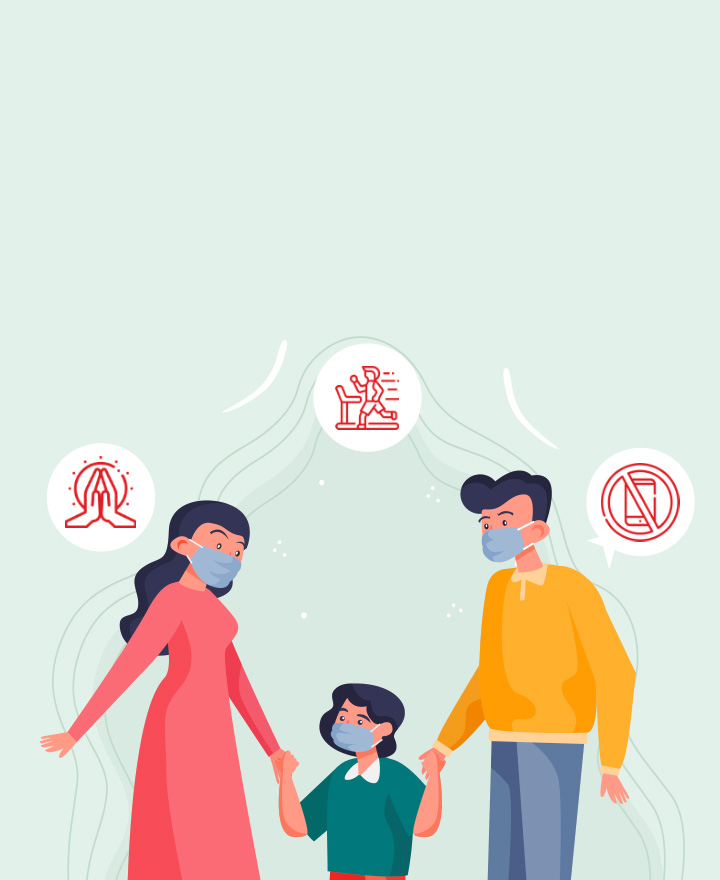

Understanding PANDAS Syndrome: A Comprehensive Guide
PANDAS Syndrome is mainly an autoimmune neuropsychiatric disorder that occurs in children. The immune system's overreaction to streptococcal infections causes an inflammatory response in the brain. The antibodies attack children’s healthy brain tissues. Symptoms of this syndrome include depression, personality changes, and restricted eating. Read this informative article to learn about this syndrome’s causes, symptoms, diagnosis, and treatment.
What Is PANDAS Syndrome?
PANDAS Syndrome stands for Paediatric Autoimmune Neuropsychiatric Disorders associated with streptococcal infections. It explains a set of illnesses like strep throat and red fever that can affect children in the age range of three to twelve. According to several medical professionals, it occurs more frequently in male children. Additionally, there is a belief that children may be more susceptible to PANDAS if they are exposed to the following:
• Regular streptococcal infections, such as scarlet fever or strep throat
• Rheumatic fever or autoimmune illnesses that run in the family
What causes it?
According to some theories, this syndrome develops when your child's immune system creates antibodies to combat the bacterium that causes strep throat. This happens when an infection causes the immune system to attack the body’s healthy cells, mainly in the brain. This syndrome can cause tics and obsessive-compulsive behaviour in children.
Symptoms
The symptoms of PANDAS syndrome can differ among children and may indicate a combination of neurological and psychosocial issues. It is believed that the symptoms come on quickly and in spurts. It also shows signs of obsessive-compulsive disorder (OCD) tics. It has been seen that this syndrome can cause the following psychological symptoms.
• Depression or anxiety
• Repeat certain actions over and over again
• Shifts in attitude or mood, particularly irritation
• Difficulty in sleeping and a lack of enthusiasm for food
• Fidgeting and signs resembling those of ADHD (attention-deficit/hyperactivity disorder)
• Anxiety related to separation
How is it diagnosed?
There are no blood tests that can confirm a diagnosis of PANDAS syndrome. However, blood tests can help diagnose if the child has had a recent strep infection or if has recovered from it. A medical professional will assess your child's symptoms and conduct a physical examination. Even in cases where your child recovers from a strep infection, a blood test might reveal whether he/she has had a recurrence recently.
If the child has a history of strep throat, he/she will need to undergo a test for the bacteria. This will help to rule out other possible causes of PANDAS. A child’s genitals and sinuses are among the areas where strep infection can be found.
The doctor might suggest blood tests or brain scans to see if an infection or something else is causing the symptoms of PANDAS. The paediatrician can also opt for a throat culture to diagnose a strep infection. If a throat swab or antibody test is negative, your doctor will prescribe some other tests.
The main criteria for PANDAS diagnosis are:
• Previous or current strep infection
• Children’s age (i.e., between 3 and 12 years old); it rarely occurs in kids older than 12
• Tic disorder, obsessive-compulsive behaviours or both
• Evidence of other neuropsychiatric symptoms
What treatments are there?
Treatment of this syndrome involves medication and therapy, which your doctor will advise. Your doctor may prescribe antibiotics and cognitive behavioural therapy. Treatment for this syndrome depends on the findings in blood tests, urine tests, brain scans, and physical examinations.
Preventing the infection in first place is the strongest defence against any disease linked to an infection. There’s a need to develop proper hygiene in children, such as:
• Teaching them to cover their mouth & nose when sneezing or coughing using their elbow or a tissue.
• Not sharing food, beverages, or personal items (like toothbrushes) with anyone
• Frequently cleaning their hands and, if possible, using hand sanitiser.
Conclusion
PANDAS syndrome is the term used to characterise a set of symptoms, including tics and obsessive-compulsive behaviour. According to medical professionals, it stands for a collection of neurological and psychological issues that kids with strep infections may experience. If you notice any of the above mentioned symptoms in your child, seeking medical intervention is prudent. Doctors can help you in reducing the symptoms with a proper treatment plan.
One of the important components of our overall wellness is also being financially secured. Healthcare emergencies can happen any time, but a good health insurance policy can protect you from such uncertain situations. To know more about Wellness and other health related tips, visit the Wellness Corner.
Source: pandasnetwork, google, healthline
Disclaimer: This blog provides general information and discussions about health and related subjects. The information and other content provided in this blog, website or in any linked materials are not intended and should not be considered, or used as a substitute for, medical advice, diagnosis or treatment. Kindly contact your Doctor before starting a new medicine or health regime.
Related Articles
Down Syndrome– Here is Everything You Need to Know
Asperger Syndrome | Signs and Symptoms
Treatment Options for Aspergers Syndrome
An In-Depth Look at Different Types of Autism
Exploring Pervasive Development Disorder (PDD)
Published on December 14, 2023














 Health Insurance
Health Insurance  Travel Insurance
Travel Insurance  Car Insurance
Car Insurance  Cyber Insurance
Cyber Insurance  Critical Illness Insurance
Critical Illness Insurance
 Pet Insurance
Pet Insurance
 Bike/Two Wheeler Insurance
Bike/Two Wheeler Insurance  Home Insurance
Home Insurance  Third Party Vehicle Ins.
Third Party Vehicle Ins.  Tractor Insurance
Tractor Insurance  Goods Carrying Vehicle Ins.
Goods Carrying Vehicle Ins.  Passenger Carrying Vehicle Ins.
Passenger Carrying Vehicle Ins.  Compulsory Personal Accident Insurance
Compulsory Personal Accident Insurance  Travel Insurance
Travel Insurance  Rural
Rural